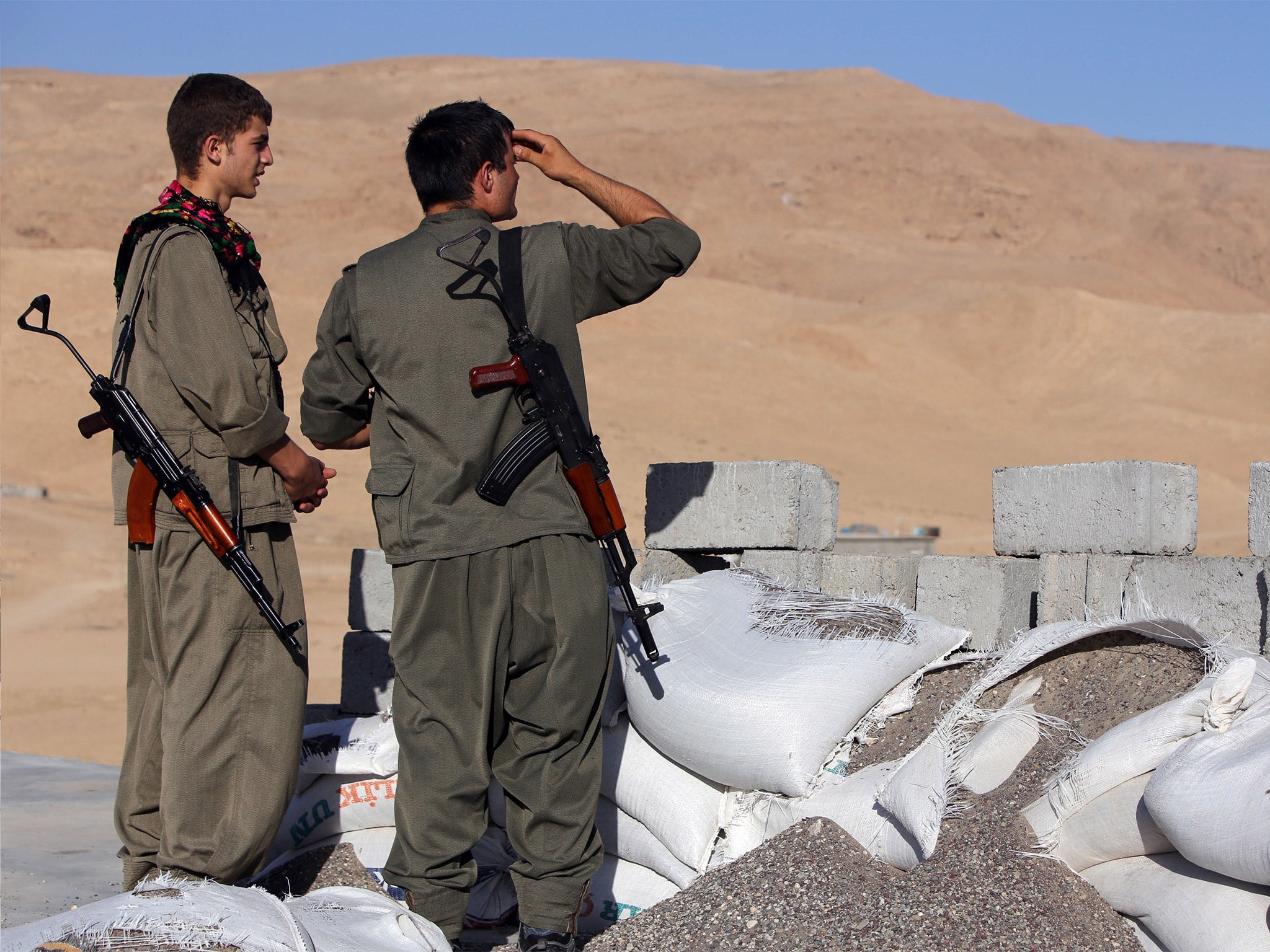Iraq's Kurds claim Isis used chemical weapons in attack on their fighters
Authorities say that samples taken from a car bombing attack are consistent with the use of chlorine gas

Your support helps us to tell the story
From reproductive rights to climate change to Big Tech, The Independent is on the ground when the story is developing. Whether it's investigating the financials of Elon Musk's pro-Trump PAC or producing our latest documentary, 'The A Word', which shines a light on the American women fighting for reproductive rights, we know how important it is to parse out the facts from the messaging.
At such a critical moment in US history, we need reporters on the ground. Your donation allows us to keep sending journalists to speak to both sides of the story.
The Independent is trusted by Americans across the entire political spectrum. And unlike many other quality news outlets, we choose not to lock Americans out of our reporting and analysis with paywalls. We believe quality journalism should be available to everyone, paid for by those who can afford it.
Your support makes all the difference.Iraqi Kurds claim to have evidence that Isis used chemical weapons against their fighters in January this year.
The Security Council of the semi-autonomous Kurdish region in northern Iraq say that soil and clothing samples, taken after an Isis car bomb attack on 23 January, are consistent with the use of chlorine gas.
Laboratory analysis showed that “the samples contained levels of chlorine that suggested the substance was used in weaponised form”. The allegations have not been independently verified.
The car bombing allegedly occurred on a main road between Mosul and the Syrian border.
A bomb was fired at the car by Kurdish forces to ensure there were no casualties, according to a security source.
Despite this precaution, about a dozen Kurdish fighters apparently experienced symptoms of nausea, vomiting, dizziness or weakness.
The samples, tested at an unnamed laboratory, were described as “leftovers from the suicide bomber”.
In a statement, the White House said that it could not confirm the allegations, but found them “deeply disturbing” and it was monitoring the situation “very closely”.
The use of chlorine as a weapon showed “growing desperation due to the pressure being applied by coalition air power and Iraqi ground forces”, a US defence official said.
The use of chlorine, a choking agent that dates back to the First World War, is banned under the 1997 Chemical Weapons Convention, which prohibits the use of toxic agents in warfare.
Chlorine has been used “systematically” in the ongoing civil war in neighbouring Syria, the organisation for the prohibition of chemical weapons, found last year.
Peter Sawcazak, a spokesman for the Dutch-based organisation, said: “We have not had a request from Iraq to investigate claims of use of chemical weapons in Iraq, and the OPCW cannot immediately verify the claims.”
The group would have to test its own samples before it could confirm the use of chemical weapons inside a member state.
Iraqi Kurds were victims of the deadliest chemical attack in recent history when Saddam Hussein’s air force bombed the town of Halabja, where at least 5,000 people were gassed to death.
Additional reporting by Reuters
Join our commenting forum
Join thought-provoking conversations, follow other Independent readers and see their replies
Comments